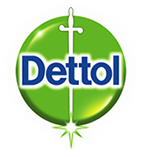Making sure your family to wash their hands at the appropriate times could have a huge impact on their health. Find out how to wash your hands the Dettol way.

What You Need to Know
Whenever you touch something that contains germs, like raw meat, a dirty cleaning cloth or a surface that someone has sneezed over, germs can transfer to your hands. If you then touch your eyes, nose or mouth, a wound, or food or water that you then consume, these germs can get inside your body and make you ill. The germs on your hands can also spread to all the other people and places that you touch.
One of the best ways to stop germs from spreading around your home and to you and the rest of your family, is to wash your hands regularly with soap and water. If your hands look dirty, you need to wash them to remove the dirt and germs. However, to reduce the risk of infections, such as colds and flu, and those that cause vomiting and diarrhoea, you also need to wash your hands before or after certain tasks – even if your hands look clean. These are the key times to wash your hands.
| Before | Before and After | After |
|---|---|---|
|
|
|
How to Wash Your Hands
To remove the germs from your hands, you need to lather every part of your hands and then rinse all the soap and germs away with plenty of clean running water. It is also important to use a clean towel to dry your hands. Damp towels can get germy very quickly and pass germs from one person to another.
How to Wash

Using an antimicrobial soap can help to destroy the germs on your hands and adds an important extra margin of safety. This is particularly useful when there is more risk from germs, such as when someone is ill or if there is a baby or another vulnerable person in your home.
When Soap and Water are Not Available
Even when soap and water are not available, it is possible to keep your hands hygienically clean. Alcohol-based hand sanitisers are designed to destroy the germs on hands that are not visibly dirty, without the need for water or towels, and are ideal for situations where you cannot easily get to a sink.
